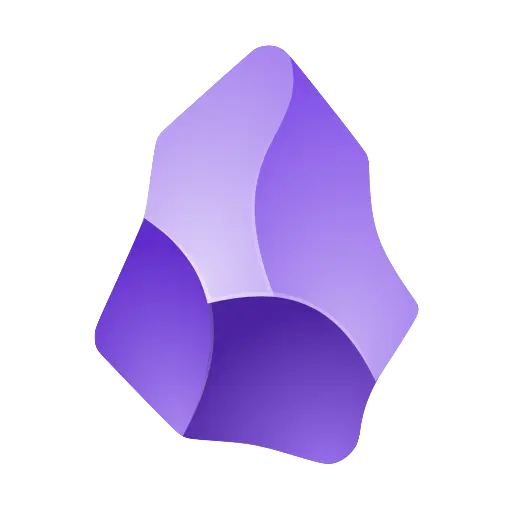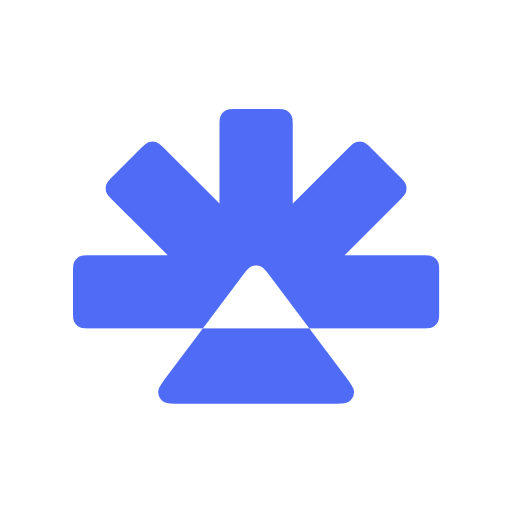AI-powered knowledge management has evolved from simple note-taking to sophisticated systems that understand, organize, and connect information intelligently. In 2025, the landscape divides between comprehensive workspace platforms like Notion AI, privacy-focused tools like Obsidian, and AI-native platforms like Mem. This comprehensive analysis examines the top 6 tools transforming how individuals and teams capture, organize, and retrieve knowledge.
After analyzing AI capabilities, knowledge organization approaches, collaboration features, and pricing models, we've identified distinct categories serving different needs: team workspace platforms, graph-based personal systems, AI-first capture tools, research-oriented solutions, open-source alternatives, and learning-focused platforms.
AI Integration Approaches: Native vs Plugin vs External
The knowledge management landscape showcases three distinct approaches to AI integration, each with unique benefits and trade-offs. Understanding these architectures helps predict which tools will evolve most effectively as AI capabilities advance.
Native AI Platforms
Notion AI and Mem represent the native AI approach, building intelligence directly into their core architectures. Notion AI integrates across databases, pages, and collaborative features, while Mem builds AI-first capture and retrieval as foundational capabilities. This approach delivers seamless user experiences and consistent AI assistance across all platform features.
Native integration enables sophisticated contextual understanding and cross-feature AI assistance but requires significant development resources and creates platform lock-in. Teams benefit from unified AI experiences, while individuals appreciate zero-setup intelligence. However, users depend entirely on the vendor's AI development roadmap and cannot customize or replace AI components easily.
Plugin Ecosystem Models
Obsidian represents the plugin ecosystem approach, providing a foundation for community-developed AI features. Popular plugins like Smart Connections and Text Generator enable AI-powered linking, content generation, and semantic search while maintaining user control over AI providers and data processing.
Plugin architectures offer maximum flexibility and user control, enabling experimentation with cutting-edge AI features before official platform adoption. However, they require technical knowledge for setup and maintenance, create potential compatibility issues, and provide inconsistent user experiences across different AI implementations.
Research-Focused and Specialized Tools
Roam Research, Logseq, and RemNote prioritize specific knowledge management philosophies over AI integration. Roam focuses on networked thought and bidirectional linking, Logseq emphasizes privacy and open-source principles, while RemNote combines knowledge management with spaced repetition learning. These tools integrate AI gradually through external services or limited built-in features.
Specialized tools excel in their core domains and appeal to users who prioritize specific workflows over comprehensive AI assistance. They often provide superior performance in niche use cases but may lag in general AI capabilities compared to platforms prioritizing AI development.
Knowledge Organization Philosophies: Structure vs Networks vs AI Automation
Hierarchical Workspace Platforms
Notion AI exemplifies the structured workspace approach, organizing knowledge through pages, databases, and hierarchical relationships. Teams can create standardized templates, maintain consistent taxonomies, and enforce organizational standards across shared workspaces. AI enhances this structure through intelligent content suggestions, database queries, and cross-page connections.
Structured approaches provide predictable organization, enable complex project management, and support team coordination through shared standards. However, they require ongoing maintenance, can feel rigid for creative work, and may not capture emergent knowledge relationships effectively.
Graph-Based Knowledge Networks
Obsidian, Roam Research, and Logseq embrace networked knowledge through bidirectional linking and graph visualization. Obsidian's graph view reveals knowledge structures organically, while Roam's block references enable granular connections between ideas. These tools prioritize relationship discovery over hierarchical organization.
Network approaches excel at revealing unexpected connections, supporting creative thinking, and enabling knowledge synthesis across domains. They appeal to researchers and writers who benefit from serendipitous discovery but require investment in linking practices and may overwhelm users preferring structured organization.
AI-Automated Organization
Mem represents the AI-automated approach, eliminating manual organization through intelligent tagging, automatic connections, and natural language search. Users capture thoughts without considering structure, relying on AI to identify themes, suggest connections, and enable retrieval through conversational queries.
AI automation removes organizational overhead and enables effortless capture workflows, appealing to busy professionals who want knowledge management without maintenance effort. However, it provides less predictable organization, requires trust in AI-generated associations, and may not suit users who prefer explicit control over knowledge structures.
Collaboration and Team Features: Individual vs Team-Focused Design
Team Workspace Solutions
Notion AI leads team collaboration with real-time editing, granular permissions, and integrated project management. Teams can maintain shared knowledge bases, coordinate project documentation, and leverage AI assistance across collaborative workflows. The platform's database features enable sophisticated team coordination through custom views, filters, and automated workflows.
Team-focused platforms provide comprehensive collaboration but require organizational adoption and change management. They excel for teams prioritizing shared knowledge and coordinated workflows but may overwhelm individual users who need simpler personal knowledge management.
Individual-Focused Tools
Obsidian, Mem, and RemNote prioritize individual productivity with optional sharing capabilities. Obsidian Sync enables vault sharing but emphasizes personal knowledge building, while Mem focuses on individual capture with limited team features. These tools optimize for personal thinking rather than team coordination.
Individual-focused design enables deep personal productivity and supports private thinking without coordination overhead. However, teams requiring collaboration must supplement with additional tools or accept limited sharing capabilities.
Privacy and Data Ownership Models
Local-First Approaches
Obsidian and Logseq prioritize local data storage and user ownership. Obsidian stores notes locally with optional encrypted sync, while Logseq provides fully open-source local-first architecture. Users maintain complete control over their knowledge bases without depending on cloud services.
Local-first models provide maximum privacy and data portability but require users to manage backup, sync, and collaboration infrastructure. They appeal to privacy-conscious users and organizations with strict data requirements but may complicate team workflows and cross-device access.
Cloud-Based Platforms
Notion AI, Mem, and RemNote operate primarily through cloud infrastructure, enabling seamless sync, collaboration, and AI processing. Notion provides enterprise security and compliance certifications, while cloud-based AI requires data processing on external servers for intelligent features.
Cloud platforms deliver convenience, AI capabilities, and effortless collaboration but require trust in service providers and create data portability challenges. They suit teams prioritizing functionality over data control and individuals comfortable with cloud storage trade-offs.
Pricing and Value Analysis Across Tool Categories
Freemium vs Subscription Models
The knowledge management market employs diverse pricing strategies reflecting different value propositions. Obsidian offers full personal functionality free with optional paid services, Logseq provides completely free open-source access, while Notion AI and Mem use freemium models with AI features requiring subscriptions. RemNote targets educational markets with student discounts, and Roam operates subscription-only for premium positioning.
Freemium models enable risk-free evaluation and personal use while generating revenue through advanced features or team functionality. Subscription-only approaches ensure consistent revenue but create barriers to entry and evaluation. Open-source models provide maximum access but depend on community development and optional services for sustainability.
Use Case Recommendations: Matching Tools to Workflow Needs
| Use Case |
Primary Recommendation |
Alternative Options |
Key Factors |
| Team Knowledge Bases | Notion AI | Obsidian (with Sync) | Real-time collaboration, AI assistance |
| Academic Research | Obsidian AI | Roam Research, RemNote | Privacy, longevity, citation support |
| Personal Knowledge Management | Mem | Obsidian, Logseq | AI automation, quick capture |
| Student Note-Taking | RemNote | Notion AI, Obsidian | Spaced repetition, study features |
| Privacy-Focused Research | Logseq | Obsidian | Open source, local storage |
| Creative Writing Projects | Roam Research | Obsidian, Notion AI | Networked thinking, idea connections |
Future Trends and Strategic Considerations
AI Evolution Trajectory
Knowledge management tools are evolving toward more sophisticated AI capabilities including multimodal understanding, reasoning across knowledge graphs, and proactive information surfacing. Native AI platforms like Notion AI and Mem will likely advance fastest in AI sophistication, while plugin ecosystems like Obsidian will provide access to cutting-edge AI through community development.
The convergence of large language models with knowledge graphs promises more intelligent information synthesis and discovery. Tools that successfully combine structured knowledge representation with natural language interfaces will likely dominate future knowledge work scenarios.
Privacy vs Convenience Balance
Growing privacy awareness creates tension between AI convenience and data control. Local-first tools like Obsidian and Logseq benefit from privacy concerns, while cloud-based AI platforms face pressure to provide better data governance and user control options.
Future solutions may combine local AI processing with cloud synchronization, enabling AI capabilities without compromising privacy. Edge computing and local language models could transform this landscape, making powerful AI available in privacy-preserving architectures.
The knowledge management landscape in 2025 offers unprecedented choice and capability. Success depends on matching tool capabilities to specific workflow needs, privacy requirements, and collaboration patterns rather than pursuing feature completeness or AI sophistication alone.





